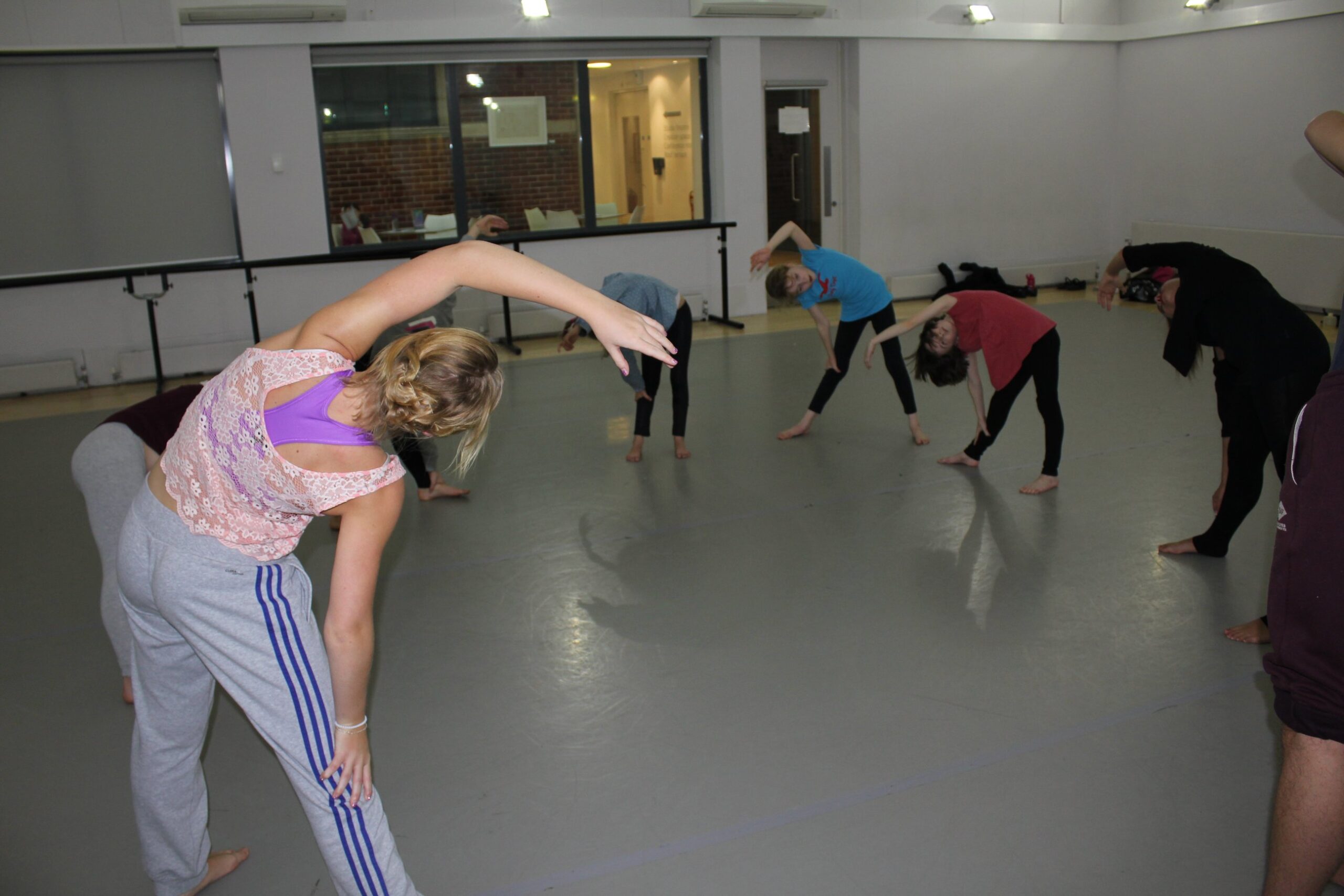
Dance development intern Claire Wakefield leading a workshop at the Point Theatre
Investment in internships
Eastleigh Borough Council's Culture Unit is proud of the interns it has employed. Cheryl Butler describes the programme she has set up.
Even before the latest national debate about graduate employment and opportunities for young people, we noticed growing numbers of graduates applying for admin positions within our Culture Unit. Although this provided entry-level opportunities, it raised a number of issues: graduates were keen to take on substantial project work, but we also needed to ensure that our administrative processes ran smoothly.
The result was often frustration and resentment. Graduates took a long time to move on and when they did it was often to a low-ranking position. Meanwhile, those graduates who applied for development posts were rarely reaching the interview stage, either because of poor-quality applications or lack of experience. Those who were called for interview often did not know how to present themselves to best effect. This problem was creating a lot of national debate but nothing much in the way of solutions. We decided to challenge this impasse with a fully structured internship programme.
They were transitional positions, specifically structured to take them from university leaver to career starter
As an organisation which believes in training and development for our staff, which supports emerging performance companies and offers ladders of opportunity for young people to engage in the arts, we thought we were well placed to create similar structures within our management operations. We decided to create specific paid intern posts with a clear development roadmap. These were pitched at entry-level candidates, but the programme would offer a range of meaningful experiences and opportunities coupled with support for future job applications and interviews. These posts would be fixed-term for a year so the purpose was very clear to candidates: they were transitional positions, specifically structured to take them from university leaver to career starter. Candidates would understand that the next job would be the ‘dream job’ and the purpose of the internship would be to give them an edge against the competition when the dream job became vacant.
We now have opportunities for dance development interns and drama development interns. For every major project we work on, we factor into the budget an intern role. The latest example is our Recreate European programme, where we have a press and PR intern attached for the duration of the project. Recent maternity covers have also enabled us to offer a marketing internship and we have also created a technical intern role within our theatre tech team. All the interns have a specific mentor, have designated projects to work on, have tailored training plans and are a valued member of the team. All make a major contribution to our arts development programme.
For us, the success of our programme is what happens to the intern when they leave us. So far, all have gone on to work in high-profile organisations at an officer level. Our programme provided them with confidence and practical skills while responding to their passion for the arts. Of course, it is very hard to let them go, as they are talented and enthusiastic individuals, but it is such a pleasure to see them flourish – and we do track their careers as they progress.
The frustration is that we cannot help more. Every internship we advertise receives more than 100 applications. There is an obvious need and yet we are turning away vast numbers of people with promise. Our main restriction is budget. We are beginning to see some support schemes coming through that encourage employers to take on interns but, as with apprenticeships, the majority of that funding goes on scheme administration rather than to the intern or the employers.
However, with a bit of creative thinking and restructuring, organisations can emulate successful programmes such as ours. It is worth it, not only for the high calibre of work the interns deliver, but also from witnessing these individuals flourish.
With internships now on the national agenda, we will continue to work on ways of improving our offer. As part of this drive, we are aiming to work closer with the university sector to help more graduates make the transition into what is a tough sector, and to lobby for more flexible government support for organisations that can create and deliver credible opportunities for aspiring young people.
Case study: Press and PR intern, Robert Leane
So far my internship with Eastleigh’s Culture Unit has been nothing short of a life-changing experience for me. Before I came here I was a Film Studies graduate with a solid degree from the well-respected University of Southampton. Despite that, and despite the enthusiasm I put into every job application, I was faced with a sea of rejections and a year’s worth of mundane office work in sectors which didn’t suit my interests.
I have a passion for culture, creativity and writing, and I’m now out of the admin world and putting that to good use. Cheryl’s faith in the passion and talent of young people means I am now writing press releases, online news stories and multi-media content for artists, theatre companies and large-scale public events. This has given me a huge confidence boost and has really helped me push my skill for writing to the next level. Whereas previously I had little faith I would ever find a dream job, I now feel certain that I will be a strong candidate for writing jobs all over the country.
Dr Cheryl Butler is Head of Culture for Eastleigh Borough Council.
creativeeastleigh.co.uk
Join the Discussion
You must be logged in to post a comment.